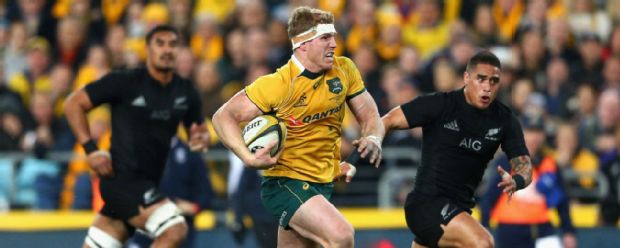|
Australia
Australian Rugby Union reports $Aus9.8 million loss
ESPN Staff
April 11, 2016
 The Wallabies played only two home Tests in 2015.© Cameron Spencer/Getty Images The Australian Rugby Union has announced a loss of $Aus9.8 million for 2015, up from $Aus6.3 million in 2014. The increased deficit results from hosting only two Tests in Australia in a Rugby World Cup year -- with subsequent impacts on broadcast, sponsorship and match day revenue -- and financial assistance provided to the Melbourne Rebels. The ARU hosts six inbound Tests in a non-World Cup year ARU officials said, however, that the financial forecast was stronger than 12 months before, thanks primarily to the 2016-2020 media rights arrangement that will deliver an extra $Aus170m over five years compared with the previous agreement. "Certainly there are substantial challenges facing us, but there are also significant opportunities," ARU Chairman Cameron Clyne said. "The popularity of men's and women's XVs and Sevens rugby is growing worldwide, and the 2016 Olympics will showcase Rugby to an even wider global audience. "At last year's World Cup, the Qantas Wallabies recaptured the imagination of the Australian public, making their fans and the entire nation proud. Michael Cheika, Stephen Moore and the team have an exciting 12 months ahead of them with three Tests against England, the Bledisloe Cup and Rugby Championship, and a Grand Slam Tour to end the year." It wasn't all bad news, however, with the ARU announcing increased participation rates. The ARU announced that total participation increased by 2.7 percent (18,857 new participants) with an extra 10.7 percent (25,866 participants) playing more than five games or structured rugby sessions weekly. This increased participation results primarily from the popularity of Sevens, with 149 new teams created in Queensland, and 84 in NSW, to play the newly-admitted Olympic sport. Women's rugby sevens participation has grown by 33 percent in the past 12 months with Australia's national female team cementing themselves as favourites for an inaugural Olympic gold medal. The ARU said that further grassroots programs, including VIVA7s (non-contact Sevens), Game On and National Rugby Week, were "increasing participation ... expanding Rugby's national footprint and encouraging more people -- regardless of their age, gender, background or location -- to develop an interest in the sport, as players or fans". "Rugby grew in the non-traditional states and territories, however the game will need to continue to invest in new formats, such as VIVA7s, to continue this growth," Clyne said. "Australian rugby's pathways programs continue to be enhanced providing stronger links between our grassroots and professional men's and women's teams." "Investing confidently in our strategic priorities will place us in the best possible position to achieve our vision: to inspire all Australians to enjoy our great global game." The Australian Rugby Union's 2015 Annual Report is available here. © ESPN Staff
|
Live Sports
Communication error please reload the page.
-
Football
-
Cricket
-
Rugby
-
- Days
- Hrs
- Mins
- Secs
F1 - Abu Dhabi GP
Abu Dhabi Grand Prix December 11-131. Max Verstappen ()
2. Valtteri Bottas (Mercedes)
3. Lewis Hamilton (Mercedes)
4. Alexander Albon ()
5. Lando Norris ()
6. Carlos Sainz Jr ()
-
ESPNOtherLive >>
Golf - Houston Open
Snooker - China Open
Tennis - Miami Open

